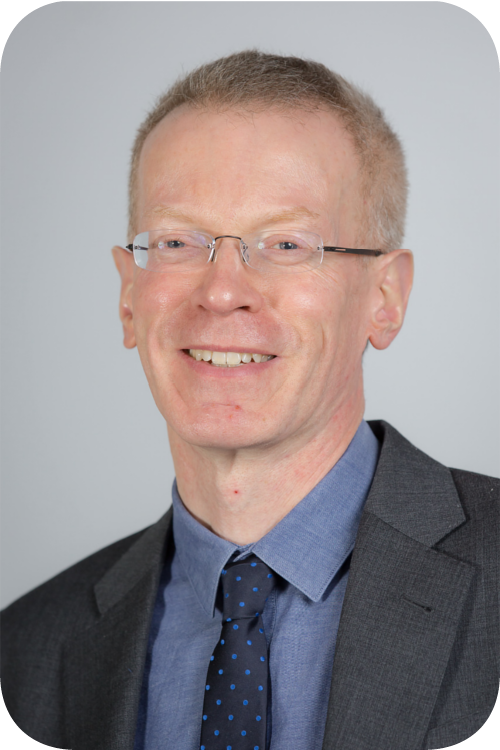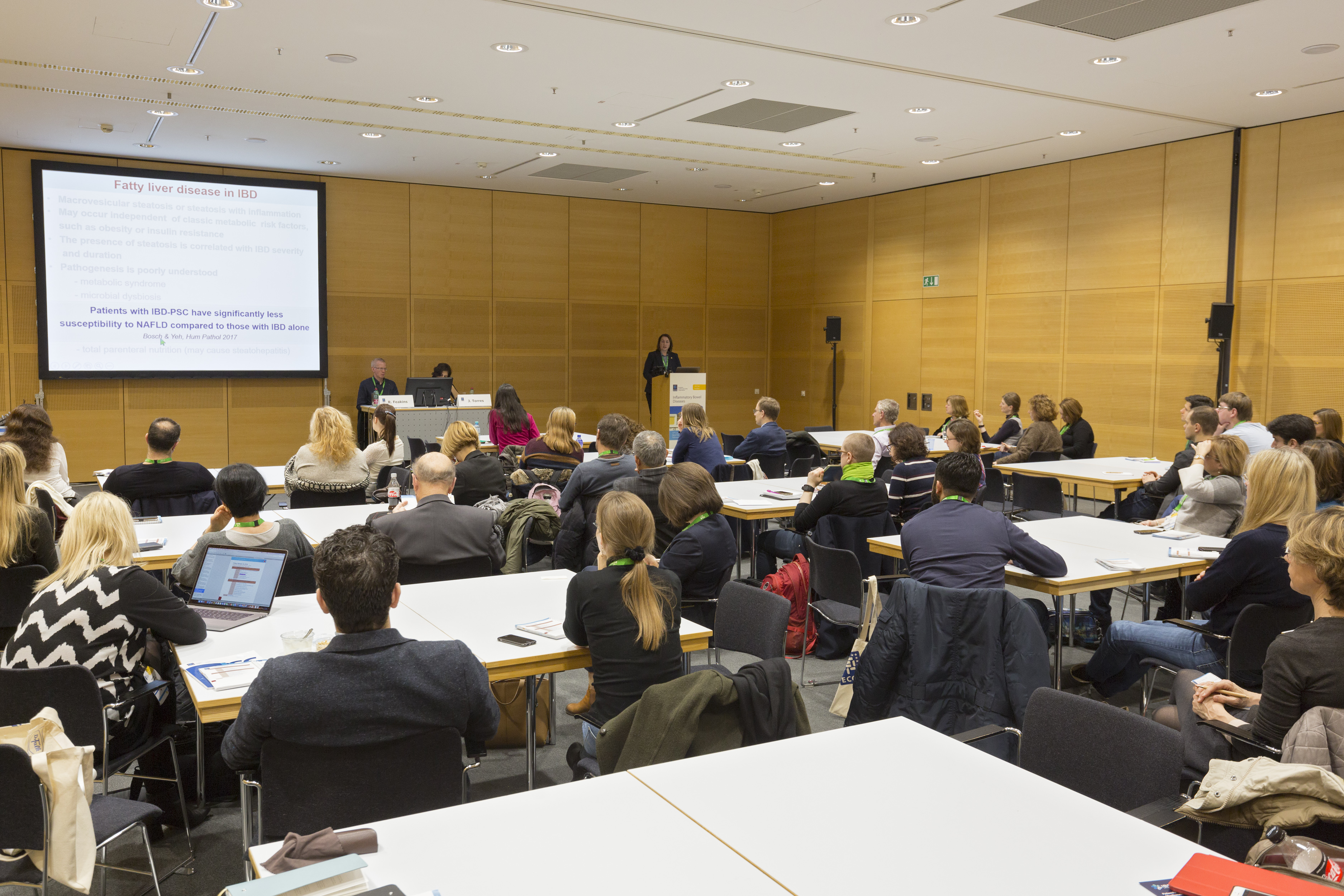Report on the 3rd H-ECCO IBD Masterclass at ECCO'18
Roger Feakins, H-ECCO Chair
 Roger Feakins © ECCO |
The 3rd Histopathologists of ECCO (H-ECCO) Masterclass took place in Vienna on February 15–16, 2018.
Since its formation in 2016, the Histology Working Group of ECCO (H-ECCO) has organised a successful annual educational Masterclass. The 3rd H-ECCO Masterclass at the 2018 ECCO Congress in Vienna ran on Thursday afternoon and Friday morning. It coincided with an important event: The official conversion of the H-ECCO Working Group to a full committee on the Thursday evening. Attendance at the Masterclass was good (over 70 registrants) and the audience comprised a mixture of histopathologists and gastroenterologists from Europe and further afield.
The H-ECCO Chair, Roger Feakins (London, UK), opened the Masterclass. The first session dealt with basic aspects of diagnosis, focussing particularly on unclassifiable IBD. Of course, pathology plays an important role in classification but it is only part of the overall picture. Accordingly, the session included not only several pathologists but also a gastroenterologist, Peter Irving from London, UK, and a surgeon, Antonino Spinelli from Milan, Italy. They outlined the clinical aspects succinctly and comprehensively and set the stage for the pathology. Paula Borralho (H-ECCO; Lisbon, Portugal) summarised biopsy pathology of IBD in her usual clear style, and Roger Feakins reviewed the features of Ulcerative Colitis (UC), Crohn’s Disease (CD) and difficult IBD in resections, noting that UC with Crohn’s-like features is a fairly common and well-recognised problem. Neil Shepherd from Gloucester, UK, is one of the top experts in the field of GI pathology and spoke next. He treated the audience to an entertaining, useful and sometimes characteristically controversial talk on appendiceal and periappendiceal disease in IBD.
 3rd H-ECCO IBD Masterclass at ECCO'18, Vienna © ECCO 3rd H-ECCO IBD Masterclass at ECCO'18, Vienna © ECCO |
The second session was entitled “Diagnostic precision”. Roger Feakins opened with a review of the diagnostic value of granulomas, particularly in the setting of IBD but also in other GI diseases. Next was an interesting talk from Paula Borralho about ileitis, followed by a lecture from Roger Feakins on the pathological differences between untreated IBD and longstanding IBD. Vincenzo Villanacci (H-ECCO; Brescia, Italy) delivered a typically captivating and colourful talk on eosinophils in IBD, a somewhat controversial subject. Magali Svrcek (H-ECCO; Paris, France) then described thoughtfully the features of dysplasia and reactive atypia – one of the most difficult areas of diagnostic pathology. The first and second sessions both ended with a slide seminar, providing an opportunity for interaction and allowing some light relief from the lectures.
The third session covered recent advances in IBD and related fields. Harry Sokol from Paris gave a beautifully illustrated talk on microbiota, shedding light on this emerging field for those of us with little existing knowledge. Magali Svrcek gave her usual fascinating round-up of “hot topics” in IBD research. We then welcomed a gastroenterologist with an interest in liver disease, Joana Torres from Lisbon, Portugal, who talked clearly and engagingly about clinical aspects of liver disease in IBD. Next to speak was Dina Tiniakos from Athens, Greece, who is President of the European Society of Pathology (ESP). Dina discussed the pathological features of liver disease in IBD comprehensively, with some helpful illustrations. Both speakers reminded us that the spectrum of liver disease in IBD extends well beyond primary sclerosing cholangitis. Magali Svrcek completed the session with a summary of the features of colorectal neoplasia in IBD, again highlighting enthusiastically the latest concepts and ideas in the field.
The fourth and final session dealt with the approach to IBD reporting, an area of considerable inconsistency within and between countries. James Lindsay, a gastroenterologist from the UK, summarised the value of clinical scores very clearly. Jean-François Fléjou from Paris, France, gave a balanced and informative talk about histological scores while Roger Feakins and Vincenzo Villanacci spoke briefly about the requirements for IBD biopsy reports and resection reports. Vincenzo also looked at the thorny subject of CMV assessment in IBD. Roger Feakins raised the possibility of the use of datasets for IBD reporting, analogous to existing cancer datasets used in many countries. Overall, this session stimulated plenty of discussion and encouraged some positive ideas for raising standards in the future. Paula and Vincenzo then gave a slide seminar to complete the session.
During the third session, Roger Feakins (as H-ECCO Chair) took the opportunity to highlight the excellent co-operation between the ESP and ECCO and to express gratitude for the support given to H-ECCO by the ESP, by the President Dina Tiniakos, and by Jean-François Fléjou (who chairs the ESP Digestive Diseases group) and other colleagues. There are plans for further co-operation between H-ECCO and the ESP.
The Masterclass ran smoothly and the atmosphere and interactions were positive. As always, the ECCO Office was highly effective and supportive. H-ECCO looks forward to continuing this activity, and hopes that it will help raise standards of IBD pathology reporting as well as stimulate interest in IBD pathology in Europe and around the world.


